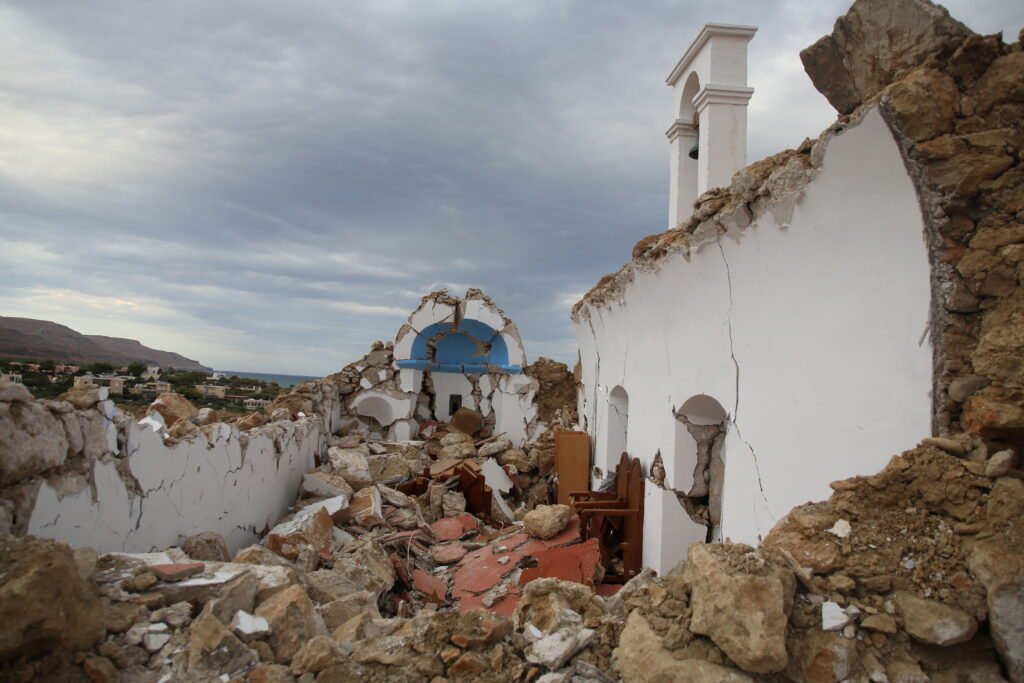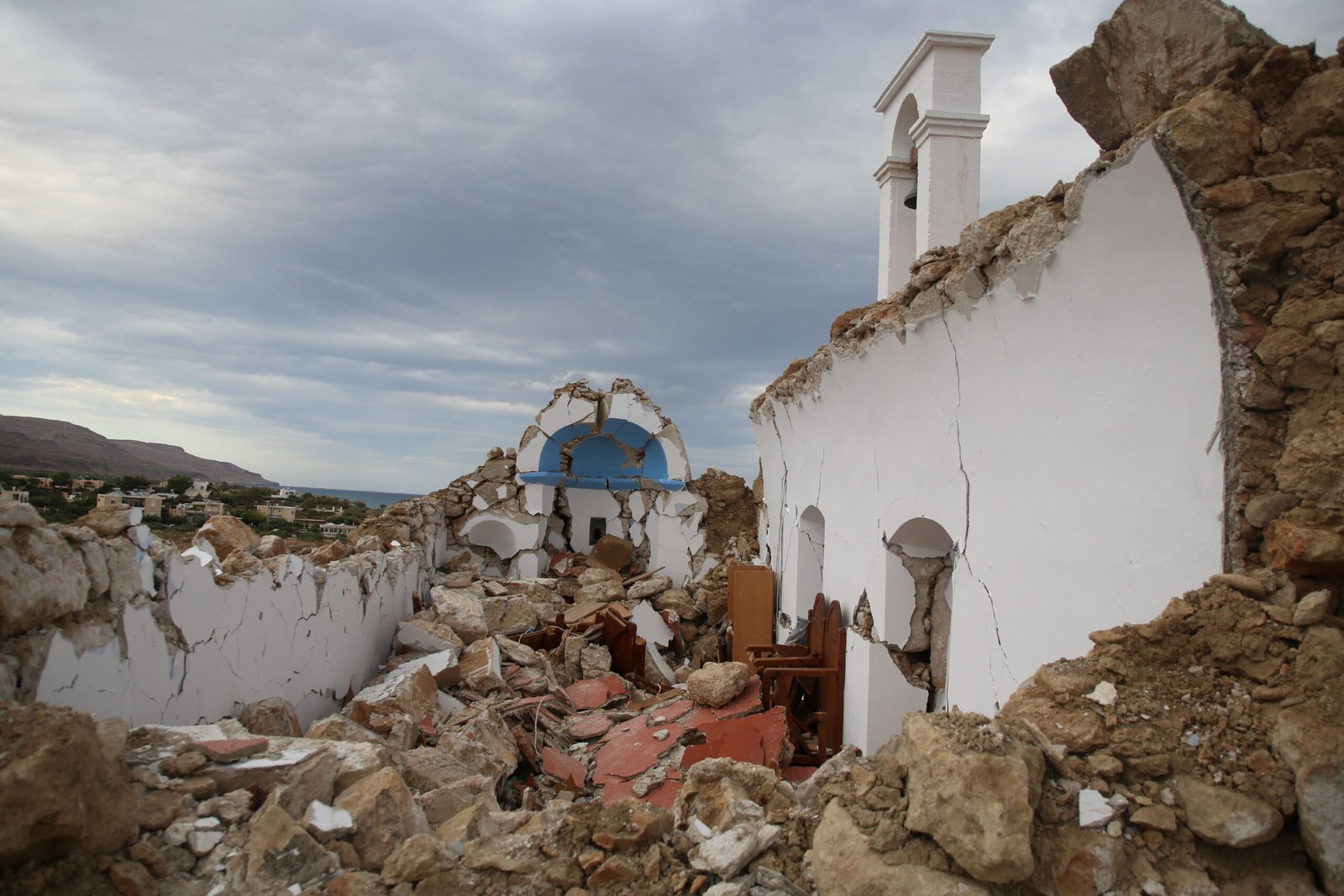As seismic events in Santorini draw attention to earthquake activity in the Mediterranean, many of our readers have expressed interest in understanding earthquakes in Crete. With over 5.35 million visitors welcomed to Crete in 2024, it’s important to provide context about the island’s geological characteristics and its well-established patterns of seismic activity.
Crete’s Current Seismic Status
Recent data from geological monitoring stations shows that while Crete is experiencing some seismic activity north of Irákleion, with several earthquakes including magnitudes up to 4.6 recorded on February 7, 2025, this falls within the island’s normal patterns. According to volcanodiscovery.com, Crete’s recent earthquake patterns remain consistent with historical averages, with 58 recorded quakes in early 2025, most of which went unnoticed by residents and visitors.
Understanding Crete’s Seismic Nature
Crete’s location in the Mediterranean makes it naturally seismically active, with the island experiencing approximately 2,300-2,400 earthquakes annually. However, this statistic requires important context:
- The vast majority of these earthquakes are so minor that they’re only detected by sensitive monitoring equipment
- Only about 301 earthquakes annually reach magnitude 3 or higher
- Approximately 27.5 earthquakes of magnitude 4+ occur yearly
- Events of magnitude 5 or higher are rare, averaging just 2.7 per year

Historical Perspective
The island’s most significant historical earthquake occurred in 365 AD, an extraordinary event that caused a nine-meter uplift of the island. Geological studies estimate such an extreme event occurs only once every 5,000 years. Recent scientific analysis, based on carbon dating of coastal corals that were lifted clear of the water in one massive push, confirms this remarkable uplift. The earthquake, estimated at magnitude 8.5 or higher, was so powerful it caused widespread destruction across the Mediterranean, from Greece to Spain, and generated a tsunami that affected coastal areas as far as Libya and Alexandria. This historical context helps demonstrate the rarity of major earthquakes in Crete.
Infrastructure and Preparedness
Modern Crete’s infrastructure is designed with seismic activity in mind. The island’s building codes and construction practices reflect centuries of experience with the region’s geological characteristics. This preparedness is evident in how well the island’s structures have withstood recent seismic events, such as the 6.6 magnitude earthquake near Ierapetra in 2020 and the 6.4 magnitude event near Chania in 2013.
What This Means for Visitors
For those planning to visit Crete, it’s reassuring to know that the island’s seismic activity is:
- Well-documented and consistently monitored
- Primarily composed of minor events that go unnoticed
- Managed through robust infrastructure and building standards
- Part of the island’s natural character that has been successfully managed for millennia
As Crete continues to welcome record numbers of visitors and maintain its position as a premier Mediterranean destination, generating 26% of Greece’s total tourism turnover, the island’s geological stability and preparedness remain key factors in its enduring appeal to travelers worldwide.
Published on: February 7th, 2025


I come since 23years to Crete and have the earthquake in 2021 that’s the only one i had,and go back this year, love Crete
23 years of visits really makes you part of the island’s extended family. 👌You’re right about that 2021 earthquake – it was quite memorable. Enjoy your trip to Crete later this year!
-Bella 💙